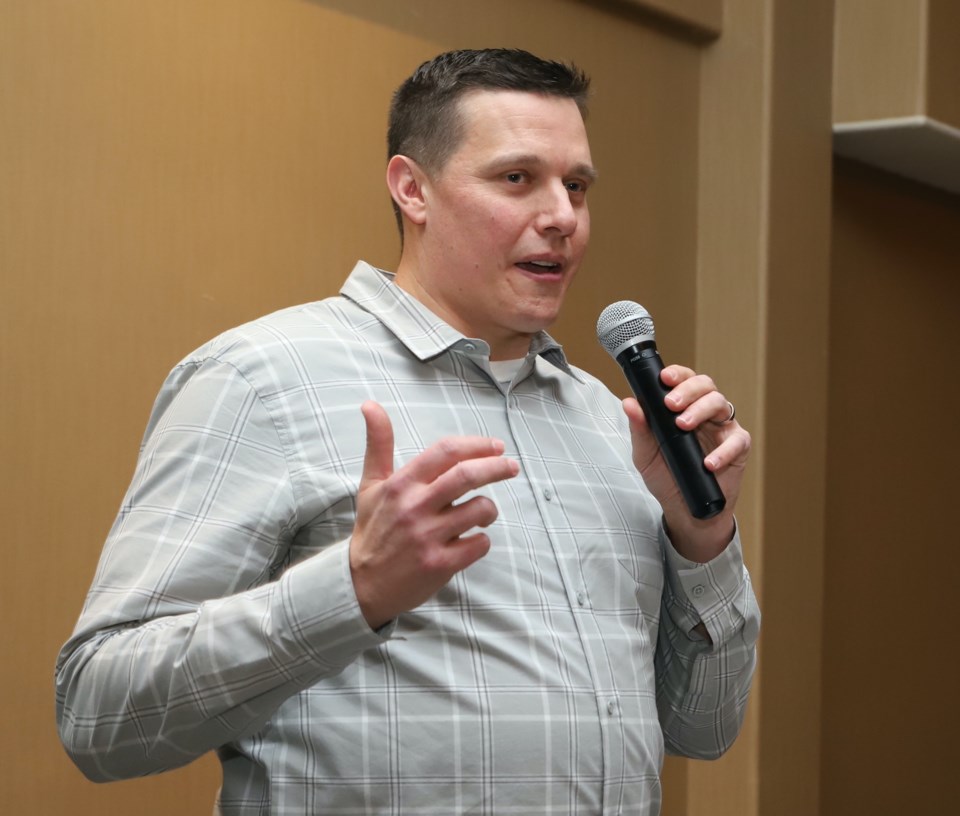OLDS — Local resident and former Calgary Stampeder Blake Machan gave Olds Grizzlys players some tips on how to make themselves mentally strong on and off ice as they go through the remainder of the season and their careers.
Machan was the guest speaker during the Grizzlys’ annual awards banquet, held Feb. 18 at the Pomeroy Inn & Suites.
He gave the players three tips:
• Establish a vision of yourself at your best and develop a way to come back to that vision when you need it;
• Come up with a strong, positive statement about yourself you believe to be true (Machan’s is “I never quit"); and
• Learn how to control your breath so you can calm yourself when things don’t go your way.
Machan told the crowd that through much of his life, he had suffered from anxiety.
That culminated in a panic attack in about 2013 after he had been retired from football (he played for the Stampeders from 2003-2005) and was working in the oil and gas industry.
Machan said in high school he was terrified of having to speak in class.
While attending the University of Calgary, he felt strong and confident as a slotback for the Dinosaurs but at one point, he was so anxious he was unable to order a treat at MacEwan Hall. He couldn’t get the words out.
“There was this real dichotomy that was happening where I was performing at a high level on the field, off the field struggling,” he said.
In 2005, the Stampeders cut Machan.
That was a real blow.
“After my time was up and I was cut, that was a really tough time for me because as I said, I had really developed my (identity) as Blake Machan the athlete, Blake Machan the football player and I was no longer that person,” he said.
“That was something that I did as a person, but in a lot of ways, I had built my identity around that.”
He went to work in the oil and gas industry but never dealt with his anxiety.
After his panic attack, Machan worked on his anxiety and depression. Eventually he got to the point that in 2017, he set up a business to help others deal with those issues.
“Really the last decade, that’s what I’ve been doing, is this process of recovery in a lot of ways and learning and digging into the importance of awareness; recognizing those moments when your mind starts to take you down the path that ultimately isn’t positive.
“And then starting to build those tools around it, because you’re never going to be in a spot where your mind is always sunshine and lolly pops. Things are tough and you’re going to have to work through things."



